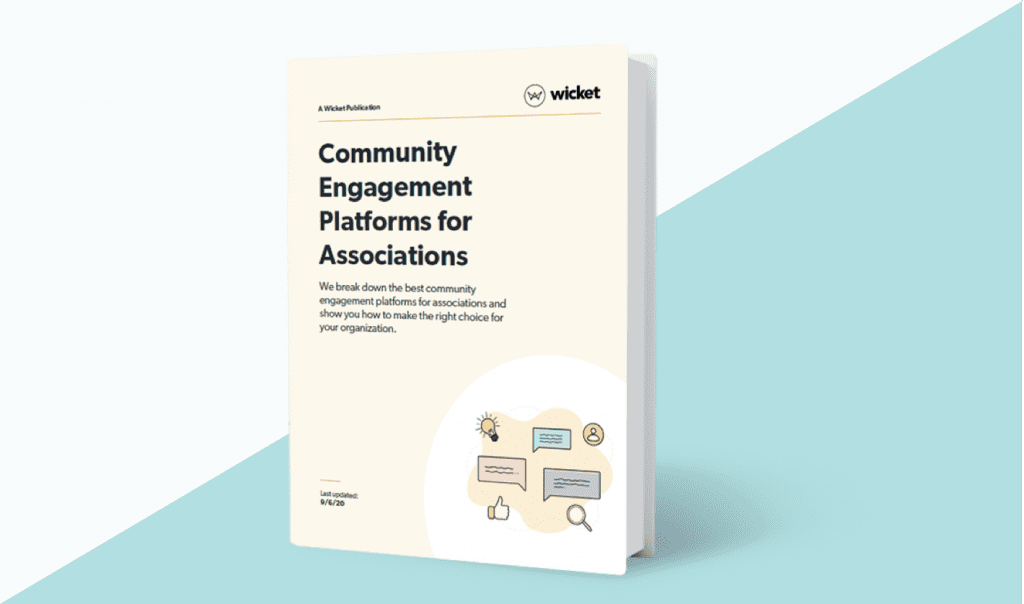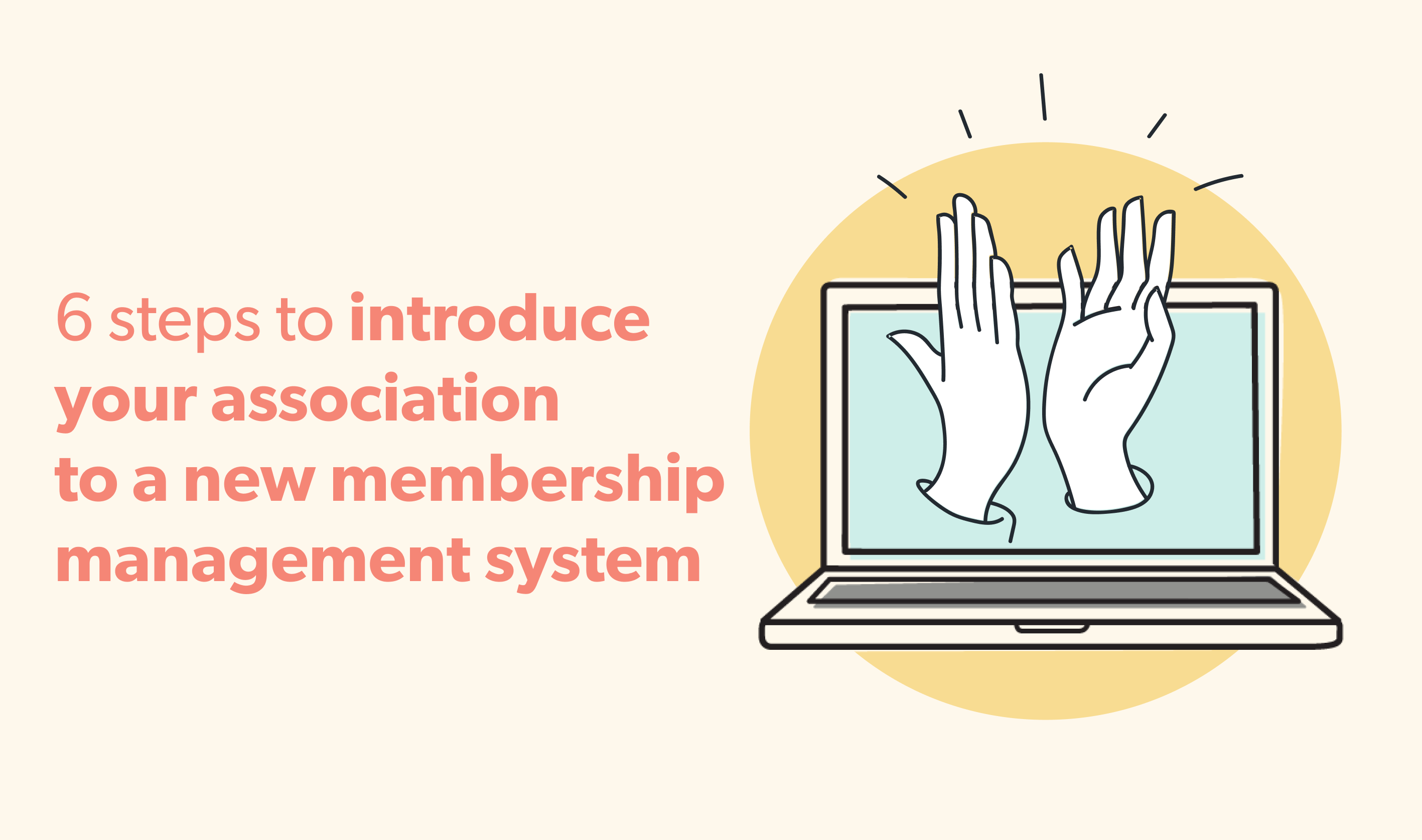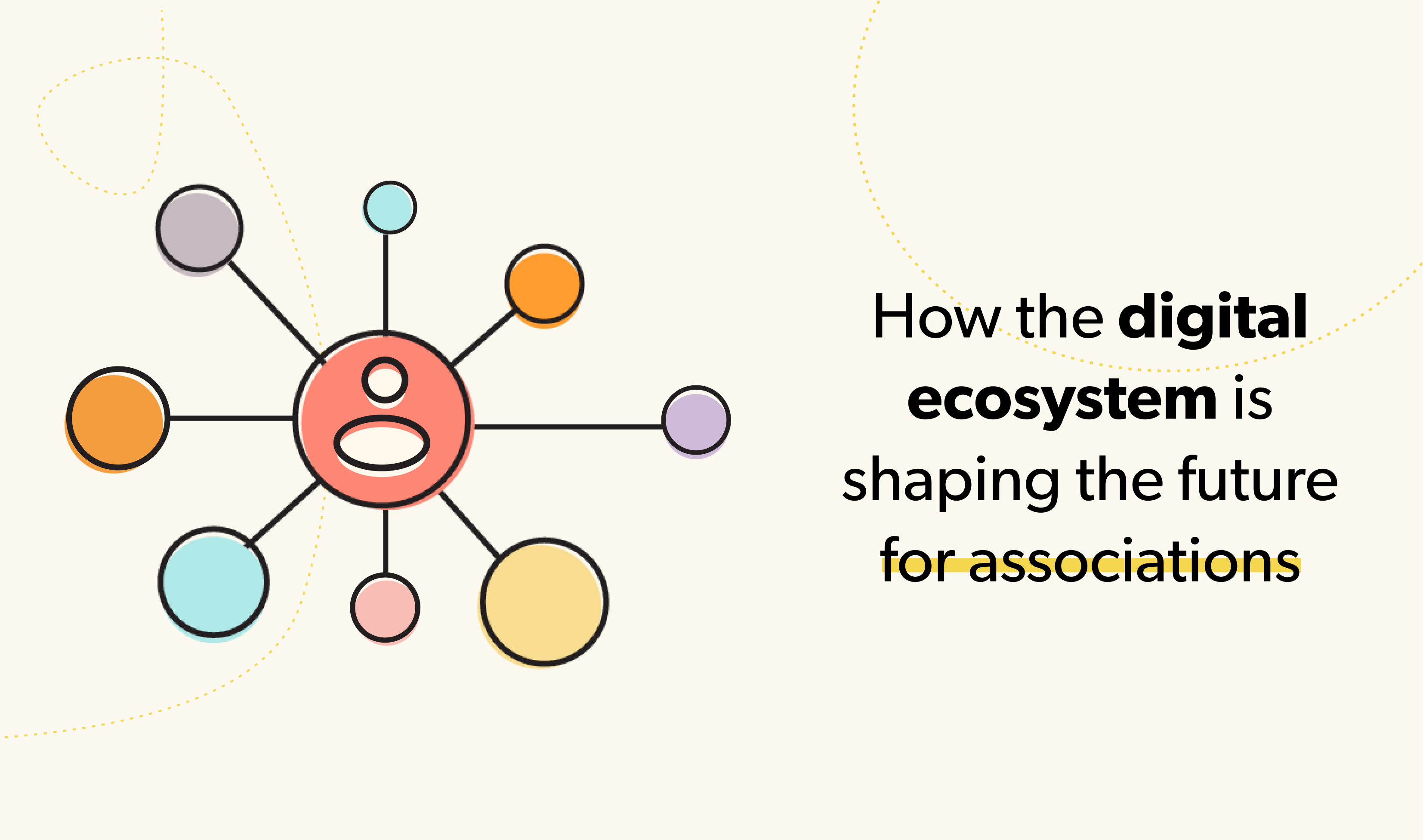Getting insights from your online community

Being able to meet in person was a critical way for members to connect and share their experiences; it was a key member benefit many associations offered. Now, as we all turn online for our social interaction, associations have to find ways to adapt and still provide a way for their members to connect. As associations look for new ways to offer that connectedness, online communities have become a clear choice.
We’ve found that online communities go far beyond offering connectedness to members; they’re also an excellent source of rich member data. Data from your community can help inform small choices like what content to post on your blog and larger strategic decisions around the products and services you offer.
This is especially true when you can compare your online community data with your member data coming in from other sources. We’ve noticed that customers who integrate their Member Data Platform with online communities are getting a fuller story of their member engagement. Suddenly they’re able to compare event attendance with purchases and also see what conversations are trending. This all contributes to that full picture of what’s genuinely driving member engagement.
We wanted to learn more about the low-effort ways our customers could manage and draw insights from online communities. That’s why when we had a chance to sit down (virtually) with Melanie Bond, Manager of Strategic Services at Higher Logic, we jumped at the opportunity.
Here, Melanie reflects on the ways your online community can give members a place to connect and provide your association with the data you need to make crucial decisions.
(This interview has been edited for clarity and length.)
I want to start off with why online communities are such a useful tool for associations. Why should associations consider creating their own online community?
I think what’s so powerful about online communities is that they allow people to connect no matter where they are and no matter what time of year. Historically, associations have had maybe one or two large events per year. That’s where their members are coming to hear from the association and network with one another. That’s really one of the main value drivers for members. Giving them a platform where they can connect with one another throughout the year is an invaluable tool.
It’s not only a member benefit. You’re also able to understand what your members care about, what topics they want to talk about, and you’re able to have that one-to-one relationship with them online.
When an association wants to use community data in decision-making, do you have tips for how they should set their community up?
I think it’s really about what they’re trying to achieve at the organizational level that they want to tie into their community goals. Many times with associations, it’s four things that they’re looking for: member acquisition, member retention, non-dues revenue and operational efficiency. Data is important to all four of those buckets. Honing in on what will tie back to your overall organizational goals will allow you to know what data you really want to monitor in your community.
It certainly can be overwhelming. The most important thing is to talk to your staff and talk to your members and hear from them directly. It’s not a good idea to create a community in a vacuum with just the membership team. You really want it to be an approach from your entire organization and have buy-in from every department because they will have a role in that community, even if it is small. It’s really important to have those one-on-one conversations and understand what’s important to them when it comes to launching this online community. The same goes for your members too. Talking to them directly so that you understand what’s missing in the membership or what’s going really well so you can make sure to expand upon that is essential.
Sometimes the prospect of analyzing member data can feel daunting. Do you have tips for analyzing data from an online community?
In the beginning, it’s important to start small. It’s great to capture a lot of different data points―that can never hurt. But I think honing in on the top three to five is the most important. Also, think about frequency. I think it can be very tempting when you launch an online community to look at your metrics every day, but that can also be very overwhelming because there will be many ebbs and flows, which is completely normal. I suggest looking at your metrics on a monthly basis, quarterly and then yearly. Then you’re going to want to look at that year-over-year growth. When you have a more mature community, you’re able to know things like summers tend to slow down, so you don’t have to be panicked when you see a dip in your metrics.
Just giving it time, too, can be really important and not jumping to conclusions. Looking for those trends and giving your community enough time to give you information. You’re not going to be able to identify any trends in that first month. You’re still building that community. You’re really going to need to give it at least 90 days before you can really start leveraging some of that data for those larger strategic initiatives.
For organizations without a lot of time or a dedicated resource, what are some quick, low effort insights they can draw from their online community?
Looking at your most popular discussions is something you can do weekly, depending on how popular your community is. That is a great pulse check; you’re able to see what your members care about at that moment. That can really drive content for social media, your blogs, and newsletters. You can really use this as a content generator.
From there, taking a look at who’s often logging into the community is useful because those are your very engaged members.
Taking a look at the email open rate is also really important because that’s a really great pulse check on how engaged your group is and if they’re receptive to the community’s content.
Do you have any favourite examples you can share of organizations using data from their online community in their decision-making process?
One example we like sharing is from ASAE. They started seeing that GDPR was being searched and discussed frequently. Based on this, ASAE put together a GDPR program to satisfy their members’ interest in the topic.
My last question for you: what’s the most important thing people should keep in mind when setting up their online community?
I think the biggest thing about having an online community is that you are looking at that data, and it doesn’t end up siloed in your organization. I do see organizations looking at all of these different data points, and then they’re not taking the community data into consideration. Bringing community data in so that you do have a holistic view is really my biggest piece of advice. Making sure that the community is really adopted internally across the board is also critical for success.
Melanie Bond is Manager of Strategic Services at Higher Logic. Melanie advises clients on community management strategy and best practices for building a highly engaged and successful community. Prior to Higher Logic, Melanie worked at WeddingWire as a Senior Customer Success Manager. For more content, follow Higher Logic on LinkedIn.
Do you want to learn more about online communities?
If you’re interested in learning more about how you can utilize data from your online community, we strongly recommend Higher Logic’s ebook, Your Online Community is a Data Goldmine. The e-book takes a more in-depth look at all of the ways you can utilize your community data to make decisions and drive change in your organization.

Are you on the market for an online community? We’ve broken down the entire decision-making process in our downloadable guide: Community Engagement Platforms for Associations. This guide offers a breakdown on how to identify requirements, a comparison of the top community engagement platforms, and an evaluation template that you can easily fill in as you go.



